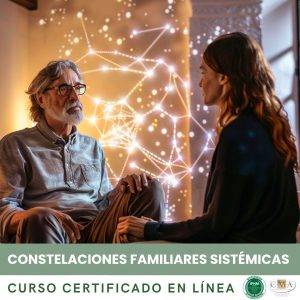
Managing the relationship and forging a working alliance are key elements for the success of Life Purpose Coaching accompaniment. Establishing a relationship of trust, mutual respect, and cooperation is essential to create a space conducive to exploration, learning, and change.
From the very first contact, the coach lays the groundwork for an authentic and benevolent relationship. They welcome their client with empathetic listening, a warm presence and unconditional acceptance. The coach is genuinely interested in the person as a whole, beyond the problem they bring to the table. They recognize their client as a unique individual, deserving of respect and possessing resources.
The quality of the link is also built through the clarification of the framework and mutual commitments. During the outset session, the coach explains in detail the progression of the coaching, its ethical principles, and the responsibilities of each party. A support contract is established, specifying the objectives, duration, frequency of sessions, and practical terms. This clear and secure framework is essential for the client to confidently engage in the process.
Throughout the accompaniment, the coach is dedicated to developing a solid and effective working alliance. This alliance is based on an equal partnership, mutual trust, and a mutual commitment to achieving goals. The coach considers the client as the expert of their life, the main actor in their development. They encourage the client to express their needs, preferences, and to take an active part in the process.
For instance, the coach may propose different tools or exercises and invite their client to choose the ones that resonate most with them. They will make sure to regularly receive feedback to adjust their approach and interventions as best as possible. This co-construction of the accompaniment reinforces the commitment and motivation of the coachee.
The working alliance is nurtured through open and fluid communication. The coach encourages free and sincere expression in an atmosphere of benevolence and non-judgment. They welcome with equal consideration both successes and difficulties, pleasant and unpleasant emotions. Through their quality of presence and deep listening, the coach allows their client to feel recognized and validated in their experience.
Imagine a client expressing their difficulty in daring a career change for fear of failure. The coach would listen empathetically, neither minimizing their fear nor pressuring them to act. They could rephrase: “I understand that this fear of failure is present and is holding you back. It’s a normal emotion in a process of change.” This benevolent validation helps the client to accept themselves and gradually overcome their obstacles.
The coaching relationship is also a space for honest and constructive feedback. The coach shares their observations, inquiries, even their intuitions, to stimulate the coachee’s awareness and reflection. They know how to use benevolent confrontation judiciously to highlight inconsistencies or blind spots, always in service to their client’s development.
For example, facing a client who repeatedly complains about their manager, the coach could tactfully remark: “I hear your frustration regarding your manager. I wonder what’s preventing you from expressing your needs directly to them. What do you think?” This reflection invites the client to explore their share of responsibility and possible courses of action.
Lastly, the working alliance involves celebrating successes and learning together. The coach highlights progress, newly developed skills, and everyday “small victories”. They help their client to anchor their resources and develop a sense of pride and self-confidence. Each session is concluded with a review of progress and insights, to appreciate the journey traveled.
In summary, managing the relationship and the working alliance are at the heart of the Life Purpose Coach profession. Through an empathetic posture, authentic communication, and a cooperative framework, the coach creates a bond of trust conducive to the client’s progress. This alliance encourages commitment, motivation, and the ability to dare to change towards a more fulfilling and meaningful life.
Key points to remember:
– Managing the relationship and the working alliance are essential for the success of an accompaniment in Life Purpose Coaching.
– From the first contact, the coach establishes an authentic and benevolent relationship, based on empathetic listening, warm presence, and unconditional acceptance.
– Clarifying the framework and mutual commitments, through a support contract, is crucial to create a secure space conducive to client engagement.
– The working alliance is based on an equal partnership, mutual trust, and a mutual commitment towards achieving goals. The coach regards their client as the expert of their life and encourages them to take an active role in the process.
– Co-constructing the accompaniment, by proposing adapted tools and soliciting client feedback, enhances their engagement and motivation.
– Open and fluid communication, in an atmosphere of benevolence and non-judgment, allows the client to feel recognized and validated in their experience.
– The coach uses honest and constructive feedback, sometimes in the form of benevolent confrontation, to stimulate the coachee’s awareness and reflection.
– Celebrating successes and learning together, by highlighting progress and newly developed skills, helps the client to anchor their resources and strengthen their self-confidence.
👉 To download docx (Editable) file click here : Click here
👉 To download PDF file click here : Click here
👉 To download MP3 file click here : Click here





















































































